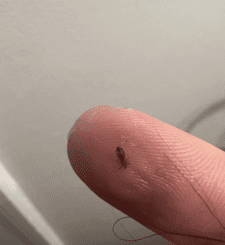In the age of constant digital connectivity, the dynamics between parents and their tech-savvy teenage children have become increasingly complex. One emerging phenomenon that highlights this shift is the “nose cover” trend, where members of the Zoomer generation strategically conceal the middle of their faces in family photos. This seemingly simple act represents a larger battle over privacy, consent, and the control of one’s online image.

For parents like Michelle Harris, the “nose cover” technique came as a surprise when trying to capture the perfect family photo. Her teen’s reluctance to show his face and his subsequent explanation revealed the underlying reasons behind this new trend.
As Harris discovered, teens are increasingly aware of the potential for embarrassment and social consequences when unfiltered photos of them are shared online without their consent. Covered faces become a compromise, allowing them to participate in family moments while maintaining a level of autonomy over their digital presence.
Reflecting on the past, Harris recalls a time when photos were relegated to physical albums, only to be revisited on special occasions. Today, the ubiquity of social media and the ease of sharing digital images have transformed the way families document and preserve their memories.
“As parents, we want to capture it all,” Harris said. “Their first step, every tooth, the braces, the spots. And then we proudly post in our online social circles mindlessly without stopping to think how damaging this can be to our youngsters within their own online social groups.”

Parenting expert Amanda Jenner explains that the “nose cover” trend is a natural response to the unique challenges teenagers face in the digital landscape. The need to navigate their “awkward phases” and establish personal boundaries is a crucial part of their development, and the online world can amplify these challenges.
@hey.its.aryyyyy Like get tf out
♬ MDG X JAGGER – Mr.Goat🫡
“It’s very sad that we can’t share and be proud of family photos. But unfortunately this is the way it is today,” Jenner said.
As parents grapple with the desire to document family milestones and teenagers’ need for privacy, finding a balance becomes essential. Harris suggests that parents should seek their teenagers’ consent and negotiate what can and cannot be posted online, recognizing that sharing photos without permission may be uncomfortable for them, just as it would be for adults.

The “nose cover” trend is a symptom of the larger shift in family dynamics brought about by the digital age. By understanding the underlying motivations and respecting the boundaries of their teenage children, parents can foster healthier relationships and find a middle ground that allows for the preservation of cherished memories while also safeguarding the privacy and autonomy of their Zoomers.


